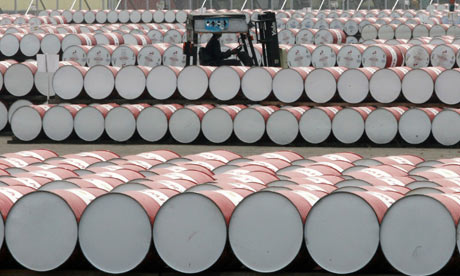Deutsche Erdoel AG (DEA AG), a German oil exploration company operating in Egypt, plans to inject about $500m over the next three years into the Egyptian market, said Maria Moraeus Hanssen, chief executive officer of the company.
According to Hanssen, the company owns about 17.5% of the West Delta fields run by the British oil company BP.
“We have no intention now to increase the proportion of partnership in the West Delta fields, we and BP are happy in partnership for now,” said Hanssen.
According to the CEO of DEA, the company produces about 36,000 barrels of oil and gas per day in the Egyptian market. “We acquire about 5% of Egypt’s total oil and gas,” said Hanssen, noting that natural gas captures about 75% of the company’s production in Egypt.
“The company has received assurances from the Egyptian Ministry of Petroleum and Mineral Resources to end the dues of the oil companies accumulated by the end of 2019, especially with the recovery of the Egyptian economy,” said Hanssen.
She added that the Ministry of Petroleum succeeded during the past 12 months to pay large overdue payments owed to international oil companies.
According to Hanssen, the company has information about Egypt’s tenders for gas and oil exploration in the coming period but said, “we cannot resolve our participation in these auctions so far, but we are interested in prospecting for gas and oil in northern Egypt in general,” said Hanssen.
“In the next two years, Egypt will begin exporting gas, reaching self-sufficiency in gas, especially since Egypt has the facilities that enable it to liquefy gas and export to many countries of the world, so we will wait to see what happens in the Egyptian market to determine whether we will start exporting gas produced from Egyptian fields,” Hanssen said.
According to Hanssen, DEA AG is studying its participation in exporting Egyptian gas, as the Egyptian gas industry liberalises, but the company has not yet decided on its involvement.
The company is currently producing about 120,000 barrel equivalents per day of oil and natural gas around the world. With the merger with German company Wintershall, the company’s production will rise to about 600,000 barrels per day, according to Hanssen. She noted that the initial agreement for the merger between the two companies is expected to be signed in March, while the full merger will be completed by the end of this year.
According to Hanssen, the company expects to increase production from the oil fields in the Gulf of Suez, as well as the development of the natural gas project in the Desouk region.
DEA AG has been operating in Egypt since 1974, producing about 650m barrels of crude oil from the Gulf of Suez through Suez Oil Company.
The company also works in the field of natural gas extraction in the Desouk region, which includes seven fields of natural gas which started production in 2013.
Suez Oil Company was established 30 years ago in partnership between the Egyptian General Petroleum Corporation and DEA AG. Suez Oil has oil and gas exploration fields in the Gulf of Suez and Desouk area in Kafr El Sheikh.
DEA AG and BP are involved in the production of natural gas in the West Delta project, where production began last May.
The deep-water concession of the Western Mediterranean is located in the West Delta marine area, which is about 40 kilometres from the coast of Egypt.
DEA AG has given BP a stake in the West Delta project in Egypt in order to better balance its asset portfolio. The deal includes the sale of part of DEA AG’s share in the first phase of the project.
According to Hanssen, the company has an interest in acquiring quotas in new oil and gas exploration concessions in Egypt. “In addition to getting quotas in concessions already in production, we are considering all options in the case of further real opportunities,” said Hanssen.




